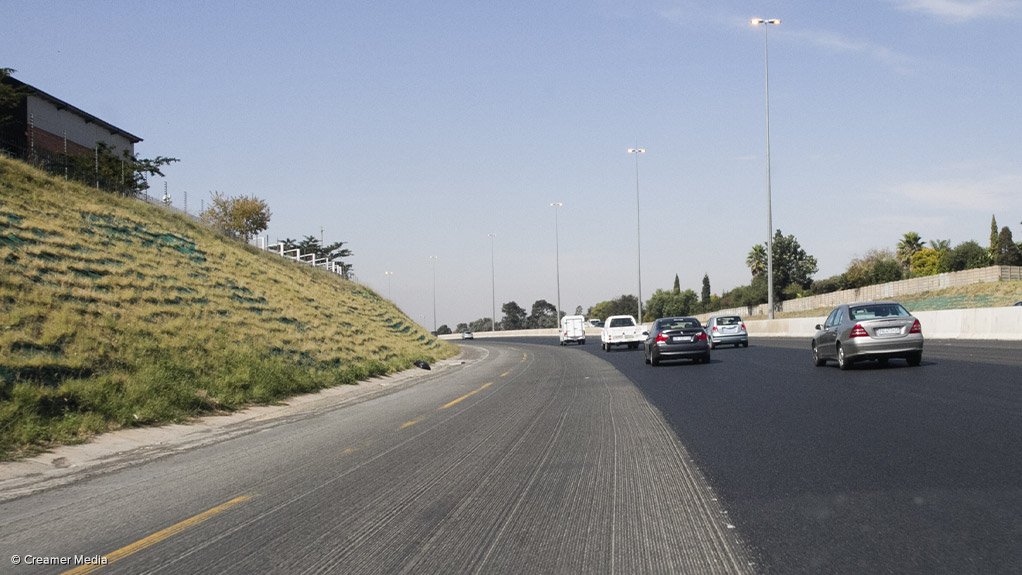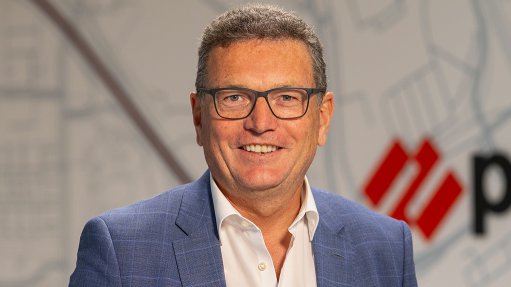Federation contributes to upskilling, calls for new funding model


THE ROAD AHEAD A comprehensive plan, which would include the required funds and development of human capital, combined with a will to execute, could address the backlog of road maintenance
The South African Roads Federation (SARF) plans to have conducted more than 50 training and capacity development programmes by the end of this year to help build the necessary capacity in terms of capital, human resources and skills in the roads sector.
The programmes cover a range of topics and intend to upskill road engineering technicians and engineers.
To date, SARF has conducted 42 training programmes this year, says SARF president Saied Solomons.
Some of the courses that have been presented are in-house SARF training courses for the Department of Transport, in KwaZulu-Natal, and the South African National Roads Agency Limited’s (Sanral) Southern Region office, which covers the Eastern Cape. The in-house courses presented to Sanral focused on road safety audits and a community engagement course.
The SARF also presented training courses for the Department of Public Works in the Northern Cape, Eastern Cape and the North West in March, as well as for other provincial roads departments on gravel road design, construction and maintenance.
“Our training programmes are always well attended and are accredited with training accreditors the Engineering Council of South Africa for continuous professional development (CPD) points. About 17 of our SARF training programmes have also been accredited for CPD with project consultants the South African Council for the Project and Construction Management Professions,” explains Solomons.
The SARF also collaborates with engineering body the South African Institution of Civil Engineering, and construction materials education institutes The Concrete Institute and Asphalt Academy, to present these programmes.
“Our course presenters are subject experts and leaders in the roads industry. We believe that the SARF’s training programmes over the years have contributed to capacitating government and private-sector players.”
The SARF will host a three-day course on the design of asphalt for road pavement in Pretoria, Gauteng, as well as a five-day course on road safety audits in Gauteng later this month.
Advanced Construction Technology
“The demand in the road construction sector has been on a steady decline; many testify that it is the worst slump in activity that they have experienced. Many construction companies have shut down resulting in thousands of job losses, with many experienced practitioners leaving our shores.”
While he points out that there is renewed activity that shows positive signs for the immediate future, a more consistent project pipeline will be necessary to instil the confidence needed for investment. This, however, would require the industry’s capacity, in terms of capital and human resources, to be improved.
Despite the aim to improve capacity in the sector, Solomons says South Africa is “fortunate to have access to the best available construction material technology in the world”.
He mentions that, owing to more intense use of urban roads, the industry has responded with designing and producing more durable material. This results in cost efficiency, and avoids frequent road closures for maintenance, which, in turn, reduces road-user frustrations.
“When appropriate, this is introduced locally through a thorough testing regime, after which the technology is integrated into standards and specifications. We are not only producers of technology but also developers thereof, as is reflected by certain locally developed material and practices being used in other parts of the world.”
Moreover, Solomons points out that a sustainable funding stream is essential to a consistent project pipeline, hence, the SARF’s calling for a new road funding regime to be implemented.
“Providing more capacity is not always practical or possible. As such, it should ideally be operated through demand management, as is done in other parts of the world, where tariffs for road use are raised during peak periods.”
The SARF commissioned a study through Stellenbosch University, in the Western Cape, in 2017, on a distance-based road user charging experiment.
The experiment provided road users with the cost of their use of roads per month, as well as their travelling statistics such as time and speed.
The first phase of the study has since been completed, and the results show that it is possible to accurately recover the true road-user cost, even from fuel efficient, electric and hybrid vehicles. This would not be the case if cost recovery was attempted through a fuel levy. Solomons argues that implementing such a system involving a distance-based road user charge could potentially result in a change of travel behaviour if users know their travel costs.
Although the first phase has been completed, the university continues with ongoing research through its postgraduate programme. He states that one of the topics includes a pilot of a distance-based user charge.
“This field of study is quite dynamic and we’ll no doubt see many more research projects covering this area in the future.”
Solomons also explains that a road-user authority, with the involvement of road users and civil society stakeholders, would assist in enforcing this method of funding.
“Public sentiment will be far easier to manage if we have a road-use charging system that is cost effective, sustainable, equitable, transparent and well administered. To achieve this, a road fund should ideally be independently administered, with compliance feedback through annual reports, so that all sectors of society know that government’s investment and road infrastructure spending are in their interests,” he concludes.
Article Enquiry
Email Article
Save Article
Feedback
To advertise email advertising@creamermedia.co.za or click here
Press Office
Announcements
What's On
Subscribe to improve your user experience...
Option 1 (equivalent of R125 a month):
Receive a weekly copy of Creamer Media's Engineering News & Mining Weekly magazine
(print copy for those in South Africa and e-magazine for those outside of South Africa)
Receive daily email newsletters
Access to full search results
Access archive of magazine back copies
Access to Projects in Progress
Access to ONE Research Report of your choice in PDF format
Option 2 (equivalent of R375 a month):
All benefits from Option 1
PLUS
Access to Creamer Media's Research Channel Africa for ALL Research Reports, in PDF format, on various industrial and mining sectors
including Electricity; Water; Energy Transition; Hydrogen; Roads, Rail and Ports; Coal; Gold; Platinum; Battery Metals; etc.
Already a subscriber?
Forgotten your password?
Receive weekly copy of Creamer Media's Engineering News & Mining Weekly magazine (print copy for those in South Africa and e-magazine for those outside of South Africa)
➕
Recieve daily email newsletters
➕
Access to full search results
➕
Access archive of magazine back copies
➕
Access to Projects in Progress
➕
Access to ONE Research Report of your choice in PDF format
RESEARCH CHANNEL AFRICA
R4500 (equivalent of R375 a month)
SUBSCRIBEAll benefits from Option 1
➕
Access to Creamer Media's Research Channel Africa for ALL Research Reports on various industrial and mining sectors, in PDF format, including on:
Electricity
➕
Water
➕
Energy Transition
➕
Hydrogen
➕
Roads, Rail and Ports
➕
Coal
➕
Gold
➕
Platinum
➕
Battery Metals
➕
etc.
Receive all benefits from Option 1 or Option 2 delivered to numerous people at your company
➕
Multiple User names and Passwords for simultaneous log-ins
➕
Intranet integration access to all in your organisation


















